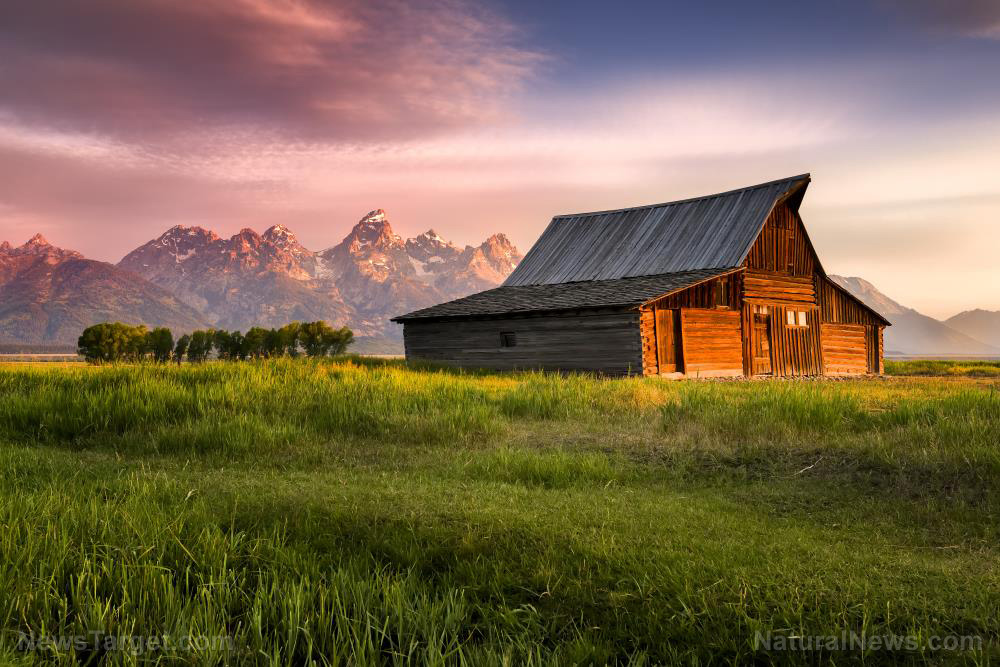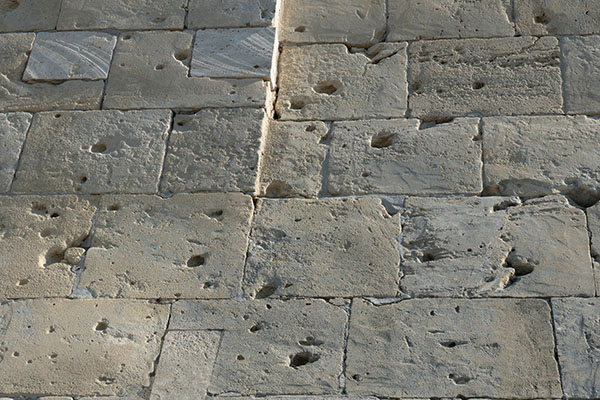 Parler
Parler Gab
Gab
Detect the direction of the wind
Wind is caused when air moves from a high-pressure area to a low-pressure area. Since weather moves in from the west, westerly winds indicate good weather because they suggest the bad weather is already to your east. Easterly winds suggest that the bad weather is coming toward you. Use grass or flower petals to determine the direction of the wind. Throw your grass or flower petals into the wind and watch the way that it blows or falls. Detect the direction of the wind by wetting your finger and holding it out. The side of your finger that gets cool will tell you from which direction the wind is blowing.Watch smoke from a fire
The air pressure determines what direction the smoke will go. In high pressure, the smoke will go directly up into the air. If the pressure is low, it will spiral back down around the fire. If you see the smoke spiraling back down, bad weather is likely on the way and is very close.Watch for calm conditions
Before a storm, the low-pressure system can push out the area's normal wind patterns and create a temporary calm before the storm begins. You'll notice a lack of wind, which creates a stillness over the area. If you're near water, it will be calm and still. This calm indicates a coming storm. At this point, you should be able to observe other signs of a storm, such as dark clouds.Smell the air
Close your eyes and smell the air. Smells become wet right before a storm, making them stronger. Before a storm, you should also notice a compost smell as plants release their waste. If you start to smell a compost scent, it likely means that a storm is coming. If you are near a swamp, you will likely smell swamp gases right before a storm. Swamp gas smells like rotten eggs because it comes from decaying vegetation.Check for humidity
High humidity often precedes a storm, so watch for signs of high humidity. Curling leaves, frizzy hair and swollen wood are telltale signs that a storm is on the way. Pine cones can also tell you if it's humid because they will stay closed if the humidity is high, but will open if the air is dry. If you live in an area that always has high humidity, rely on other observations to predict the weather.Look at the shape of the clouds
The types of clouds in the sky can tell you a lot about the weather. In general, clouds that are white and high indicate good weather and clouds that are dark and low mean rain or storms are on the way. White, wispy clouds usually mean that the weather will be clear; flat clouds mean that the air is stable; fluffy clouds mean that the air is unstable; and smaller puffy clouds may look calm, but they often build over the course of the day.Observe the position of the clouds
Clouds that look high usually mean that they are farther away but could become a weather threat up to six hours later. Lower clouds mean that bad weather is closer. As the weather threat approaches, you will see the clouds move lower in the sky.Check the color of the clouds
Clouds can be various shades of white, gray, black, and brown, and each also means something different about the weather. Black clouds mean that there is a coming storm that does not have strong winds; brown clouds mean that there is a coming storm that does have strong winds; white clouds usually mean good weather, though a storm could be on its way later in the day; and gray clouds usually mean a new or a light storm.Watch the movement of the clouds
The direction that the clouds are traveling can tell you if bad weather is on the way. Additionally, you should watch if the clouds are coming together or moving apart. Lowering and gathering clouds are a sign of bad weather coming. Clouds that are rising and spreading out indicate that the weather is clearing.Check for a red sky in the morning
Weather moves from west to east, while the sun rises in the east and sets in the west. (Related: They are screwing with the weather maps: SUN is BAD!) If you see a red sky in the morning, then it means that there is clear weather in the east, where the sun is rising, but bad weather in the west makes the sky look red. The bad weather from the west will be moving toward you, as that is how weather patterns work. The redness can appear as a bold orange to a deep red. If you see a red sky in the evening, you can rest easy. This means that there are clear skies in the west coming toward you, while the bad weather is to the east moving away from you. Try to remember this rhyme: "Red sky at night is a shepherd's delight; red sky in the morning is a shepherd's warning."Look for a rainbow in the west
A rainbow in the west means that the sun's morning rays are striking moisture to your west – the direction from which the weather is moving. This means that a storm is moving your way, indicating bad weather later in the day. If you see a rainbow in the east, then it means that the weather has already passed over you, so clear skies are likely ahead. Remember this old saying: "Rainbow in the morning gives you fair warning."Look at the moon
If the moon is easy to see in a clear sky, then it could mean that the weather is cooling. It may also mean that a low-pressure system is moving into the area, which clears away dust. This means rain could be on the way. If the moon is visible, look for a wide halo that spreads out from the moon. A halo happens when the moon shines through cirrus clouds, which suggests coming rain. Remember this old saying: "Ring around the moon? Rain real soon." A ring around the moon means a warm front is coming, which usually brings rain. The ring is caused by ice crystals that are passing over the moon. A double halo around the moon could signal strong winds in the coming storm. Also remember this saying: "Clear moon, frost soon." A clear sky means that there are no clouds to hold in the planet's heat. This means that the weather will be cooler that night and the next morning.Look for high ant mounds
Before a storm, ants will build up their mounds and create steep sides. If you see raised ant beds, especially if they were lower before, then there may be a storm coming.Look for bird migrations
Birds can sense air pressure and will time their migrations when the weather is good. If you see a flock of birds migrating in the sky, then the weather will likely be good that day. Visit Survival.news to learn more tips that you can use when you're out in the wild. Watch this video to learn how to forecast weather without any instruments. This video is from the Daily Videos channel on Brighteon.com.More related stories:
Weather forecasters: El Niño is coming this summer and will likely stretch into winter. Weather weapons are targeting human infrastructure, aiming for Extinction Level Event (ELE) via mass famine and collapse. Surviving natural disasters: How to prepare for 5 extreme weather events. Sources include: Muir-way.com Brighteon.comPrepper project: Bulletproofing greatly improves your home defense
By Olivia Cook // Share
Governments continue to obscure COVID-19 vaccine data amid rising concerns over excess deaths
By patricklewis // Share
Tech giant Microsoft backs EXTINCTION with its support of carbon capture programs
By ramontomeydw // Share
Germany to resume arms exports to Israel despite repeated ceasefire violations
By isabelle // Share










